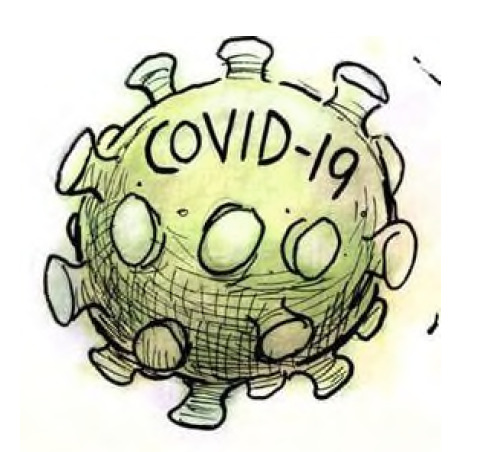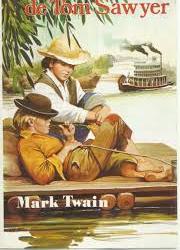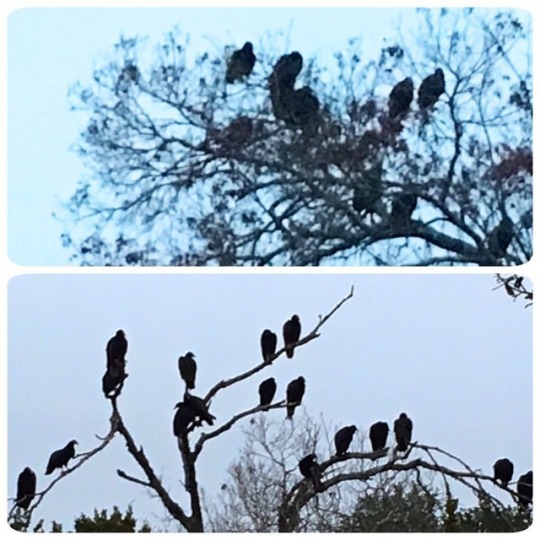Video
vimeo
Coffee and Cigarettes - Gabriela Gallegos from Gabby (: on Vimeo.
0 notes
Video
Gabriela Gallegos, USA (Spanish) from Race El Paso on Vimeo.
Candidate for World Triathlon Executive Board
0 notes
Text
COVID Haikus
COVID Haiku #5
Two meters apart
Permission to touch denied
Have an awesome prom
COVID Haiku #6
Over sixty-five
Wash hands, cover coughs, stay home
Sixty years erased
COVID Haiku #6
Over sixty-five
Wash hands, cover coughs, stay home
Sixty years erased
COVID Haiku #8
Beam me up Scottie
There’s danger Will Robinson
Switching off the news
All rights reserved.
©️ Mark Miller
Dripping Springs, TX
0 notes
Text
Boogers can wait...

Listen up y’all
There’s a new kid in town
Kinda wild looking
‘Specially that over-the-top do
They say he’s mean
An opportunist
Give him an opening
And he’s in for the kill
His friends call him CV
Short for Coronavirus
The rest of us
Don’t call him at all
Fact is, we go
To extremes
To avoid him and
His sidekick, Covid 19
You will, too, unless
You like the idea
Of your lungs filled
To overflowing until
You cannot breathe
In fact, you may die
So take heed and
Cover your face
Wash your hands often
Stay six feet away from
Your neighbor, and stay
At home whenever possible
Someday, maybe soon
They’ll have a vaccine for
This little bastard
Known as CV
In the meantime, don’t forget
He is everywhere
Don’t touch your face
Don’t pick your nose
Yeah, we know that
Last one is really hard
But be strong
Boogers can wait
CV waits for no one
All rights reserved.
©️ John Hoag
Dripping Springs, TX
0 notes
Text
COVID Haikus
COVID Haiku #1
Wuhan bats were sold
5G towers multiply
TP is no more
COVID Haiku #2
Under house arrest
Shunned by old haunts everywhere
TexMex cravings soar
COVID Haiku #3
Zoom: a place to meet
YouTube: for songs that enchant
Was pill red or blue?
COVID Haiku #4
Gloves safeguard our hands
Masks defend our mouth and nose
Liquor store holdup
All rights reserved.
© Mark Miller
Dripping Springs, TX
0 notes
Photo

Brown Frizz
2 notes
·
View notes
Text
Second Grade, the Big Year
Much like Tom Sawyer, Teresita was not much into school studies at an early age. Since making the move to US public schools during the days of the English-Only Education movement, Teresita struggled with the language transition. Dreading school daily, she would beg her mamá to return a casa. “In México, we are accepted, loved even. Here…, not so much.”
Entering second grade should have been exciting anticipation. It is the year to deepen the skills of language and math, a year of emerging confidence and independent thought. For Teresita, it was a year of deepening and developing survival skills in a classroom space that was alienating, almost as if she was truly in an alien world, in the science fiction sense of the word.
The only 2nd-grade classroom with a barely bilingual teacher was full. In truth, it was bursting at its seams. Looking back, one would think that a public school at the border with Mexico would make every effort, more of an effort, above and beyond an effort, to hire or train teachers to specifically teach immigrant, bilingual, Spanish-speaking students. Even as early as the ’70s.
Anyway, Teresita was placed with a towering English-only teacher, not understandable by the newly-arrived, 8-year-old Mexican ears. She quickly honed in on the art of mimicking. During morning lesson, a “good” student was quietly at the desk, hands clasped in front, sat straight (sitting toward the edge of the chair helped), attention was on the teacher at the blackboard, and looked interested by the figures and characters being drawn. To this day, Teresa, often sits at the edge of her seat, not because she’s ready to jump off on the move, but because learned habits are hard to break. Then, lunch. Lined up in the Free or Reduced Lunch line to gratefully receive a meal that did not look or taste like her favorite made-from-scratch, cultural meals of frijoles refritos, arroz rojo, and the forever beloved, tortillas de maíz, at every mealtime.
Later, back to practicing the impersonation of a model student. Doodling on sheets of Big Chief handwriting paper to end the school day. She gathered her doodles and followed students to a basket in which to submit completed work. Only that Teresita would decisively be the last in line to be able to turn her back to the teacher, quickly crumble the doodled work, and sneak it into her pant pocket while pretending to turn it in. Then slickly turning to look around to see if she had been caught. Pockets became a much-needed survival tool and the deciding factor for Teresita’s fashion trend.
This theatrical performance went on for six weeks, the student assessment period. Teresita was caught! A parent-teacher meeting was ordered, and Teresita was threatened to be placed in a Kindergarten class if she did not start learning English ASAP. ¡Chin! That was the day mamá enforced an English-only rule at home.
The silver lining of the second-grade year…, Yolanda. She was a beautiful and beautifully dressed classmate that became a bilingual teacher when partnered up with Teresita. Teresita envied her fashion trend of dress rompers in every color and pattern, matched by a variety of Mary Jane shoes, complemented by hair ribbons adorning her long lacy black coiffure. No contest to the brown frizz that was Teresita’s mane. Yolanda was a talented Spanish — English interpreter, one that would put to shame the only 2nd-grade bilingual teacher, and the perfect model to integrate Teresita into the US culture. She became my, cultured, Huck Finn, my first US bff.
All rights reserved.
©️ Teresa Carbajal Ravet
El Norte
#second grade#short story#immigrant children#childhood#languagelearning#bilingual education#children's books
0 notes
Photo

An abridged children's edition of The Adventures of Tom Sawyer.
0 notes
Text
Short Childhood Stories
Intro: The Adventures of Teresita
Before starting on my childhood adventures, I want to thank everyone for their financial support and advocacy for the mission of The Hub, that is, that a cultural experience of the Other is valuable in creating awareness and appreciation for diversity. Again, thank you.
These short childhood stories are memories from a defining stage in my life as I experience a border life. For the most part, they are lived memories with a little bit of creative seasoning. I came to accept and admire the creative eye and mind that was eight-year-old Teresita. She had a way of seeing the harsh world and creating a fun and embellished experience to mimic the characters of her few and cherished books. This, to avoid the challenges of living on the border and having to maneuver through two languages and cultures that were not necessarily friendly or tolerant of each other.
I’ve told this story before as it is one of my most vivid memories because, I believe, it engendered a multitude and gamut of feelings. Teresita was and continues to be, what I call, hypersensitive. A counselor has since taught me that hypersensitive may not be the accurate word in this case, suggesting empathetic instead. Either way, Teresita can physically feel and sense others’ emotions, even when on the screen. More about the screen later.
Back to the story, Teresita’s small library had a battered, broken-spine, graphic novel titled Las aventuras de Tom Sawyer, an abridged children’s edition by... who knew, certainly not Teresita. At the time, she was not entirely concerned with the authors of her favorite reads. This hardback book (the emphasis on hardback is significant, as for an immigrant child, owning hardback books was and continues to be, A BIG DEAL) was one of her favorites, hence its broken spine and tattered look, I can still see it in my mind’s eye. The peachy cover, not pink, nor orange, but a soft pastel color that allowed a child’s grime to taint and crack its glossy cover art of two besties whispering in each other’s ears, one holding a fishing rod (or was it a paintbrush?) with a broken spine and curling corners. Loved that book!
Moving on. Teresita read and looked at those graphic images many, many times, often inserting herself into the story to take Tomás’ place. The Mississippi River was quickly replaced by the Río Bravo del Norte, also known as the Río Grande. It was all too familiar to Teresita, these were two Mexican friends adventuring on the border, steering away from an adult culture and toward a more fun and exciting space, in bare feet! This last freedom, bare feet, one that Teresita could not achieve. First, because the women in her family, in particular, mamá y abuelita, absolutely had no tolerance for children in bare feet. Not only was it a matter of socioeconomic status, but also a health concern. The former implying that we were not THAT poor to not be able to own at least one pair of shoes. The latter, bare feet on cold surfaces was a sure bet to getting sick, and we were THAT poor to not have health insurance. Teresita did not fully appreciate this reasoning, however, she did understand tender feet, ones that could not endure the raw desert surfaces of El Norte. All the more reason to admire and emulate these two besties. The story was SO real, I could feel it! How could it not be?
Imagine the shock, the horror, at finding out that these besties were not Mexican, that the river was not El Río Bravo, and that Teresita was that gullible to believe otherwise. Terry, now a fully assimilated, sorta English-teenage-speaking, young adult, is instructed to read The Adventures of Tom Sawyer by Mark Twain for her high school Honors English class and to write about a coming-of-age satire and social criticism novel. Teresita’s fun, adventurous childhood bubble exploded, and Terry was left to face an unfriendly, intolerable world head-on. Enter stoicism.
All rights reserved.
c Teresa Carbajal Ravet
El Norte
0 notes
Text
About that book you’re reading…
When I was in college, I subscribed to a book club sponsored by Time Magazine. It sent you four books, their choice, three times a year. I was introduced to a broad array of genre, both fiction and non-fiction. One of those books was Ray Bradbury’s The Martian Chronicles. I loved it and it led to my lifelong love of science fiction.
Recently, the Dedalus catalog of remaindered books had offered newly printed classic science fiction paperbacks for less than $5 apiece. I bought a new copy of the Chronicles and several of Asimov’s robot series. I figured with the stay home order, I would have time to read it again. Have you ever picked up a book you read years ago and been bitterly disappointed?
It is not that the writing is poor, or the story didn’t work, it was the cultural setting, the characters, the accepted behaviors that upset me. The misogyny was expected. He was writing for a predominantly male audience who would not read something with a strong woman or a woman in charge. His mid-20th Century society had not yet gotten used to women working outside the home. While his acceptance of the “canals” of Mars was understandable, knowing what we do about Mars now, it was hard to accept but if I imagine that it was some other planet, I could excuse it. What I could not accept was the actions of the all-American teams sent to the planet. The Ugly American writ large; in case you are not familiar with that book it was a satire published in 1958 that portrayed the arrogance and stupidity many of the official sent to represent America in foreign countries. It has been recalled recently when several of the current administrations ambassadors and other supposed diplomates have made serious mistakes due to a total ignorance of what they were doing or where they were. The early ships to Mars in the book had only one or two in the crew. They seemed to know there was life on the planet but had little training to deal with the first contact. Perhaps Bradbury was attempting satire but if so, he missed. I read one of his later chapters set in what to us is the near future (2026) of an AI controlled house cooking meals, cleaning, and entertaining even though the family were dead from an atomic blast. At the time, I was so taken with the story, I attempted to paint a picture of the house replete with partially covered skeletons on the front lawn. Like my understanding of the story, it was less than successful. It was a sad lose of innocence.
I have had a similar experience with other stories. One of my favorite stories as a child was Five Little Peppers and How They Grew by Margaret Sydney, published in 1880. Dedalus again has a reproduction of the original book and I intended it for my grandchildren. When it arrived, I did my usual, read the book before I gifted it. I was appalled. Here, the cultural acceptance of characteristic we know to be learned, not born was too much. Just because you are born into a social class does not mean you are born knowing how to behave. The young widow with a house full of children struggles to support her family by doing sewing for others in the small town. She married beneath her station in life, so the family does not know he has died. They live in a run-down, rented house and the children have adventures but their inborn goodness because of their late father’s status and their mother’s previous social class always carries the day. In the end, a rich distant relation recognizes their inborn classiness and rescues them back to an upper class living with servants and a fancy house. The mother is forgiven of her major social sin, marring for love and not for class. Yuk. The book has stayed in my library.
Many British books also reflect this point of view, that birth over comes upbringing. My favorite example is from the series The Chronicles of Narnia by C.S. Lewis. As much as I love the books for their subtle religious undertones, the book The Horse and His Boy is just too much. In the title book, The Lion, the Witch, and the Wardrobe, it can be understood that the only human children in the country are bound to be the nobles of prophecy. However, in the later book, it really is a fantasy that a boy raised by an illiterate fisherman on a remote beach knows how to act like noble royalty. He is the rightful heir to the throne of a country whose evil uncle tries to kill by throwing the baby off the ship in a basket. Rather than drown, he is washed up on the beach and raised by the fisherman. He is rescued by a talking horse from Narnia who ‘recognizes” he is a noble and off they go to reclaim his throne. Excuse me?
Far too many books from England accept the notion that “blood will tell” as if the influence of biology overrides all cultural influences. Lewis and his close friend J. R. R. Tolkien were raised in this Victorian notion similar to that of the Peppers discussed above. You see it in the servitude of Samwise of the Lord of the Rings. His initial devotion is that of a feudal dependent. He must go with “Mr.Frodo,” never with his buddy Frodo. The same diffidence is given to the other young Hobbits whose identity is determined by the family from which they come, so-and-so of such a manor. In the Ring trilogy, it is less pernicious because it is written for adults, not children. In the Narnia and the Pepper books, it is written directly for children and subtly designed to influence them. If you are born of a poor family, that is where you have to stay. Ambitious goals are not for you. You were born to be poor and poor means lower class, crude, uneducated. I seriously question giving those books to modern children.
Pat Gibson
March 30, 2020
0 notes
Text
Writer's Group Limerick Challenge
Limerick #1
They tell me a limerick should rhyme
Mine do … at least some of the time
If it still leaves you cold
Though the rhyming is gold
Then surely that must be a crime
Limerick #2
So before you come stay let’s be clear
It’s unbearable much of the year
Texas people are rude
The ground’s covered with crude
Just don’t go ‘till you buy me a beer
Limerick #3 (bilingual)
En Français he would tell us each day
Ferme la bouche he so liked to say
If it’s fish you desire
And don’t wish to expire
Dites poisson non poison si’il vous plaît.
Limerick #4 (bilingual)
En France on dit mon petit chou
With loved ones, a nice thing to do
But don’t say those words here
To a sweetheart or dear
You might just get hit with a shoe
© Mark Miller
Dripping Springs, TX
0 notes
Text
To Be Continued...
Since the Midterm Elections 2018, the Cultural Hub conversation has centered around the question of "what's next?"
Quick historical context, the SV Cultural Hub served as a grassroots headquarters for the Beto O'Rourke US Senate campaign. It brought together over 100 North Hays volunteers that provided support in multiple areas. The Hub was the North Hays part of the largest GOTV grassroots machine that registered voters, lead phone banks, text banks, canvassed neighborhoods, hosted rallies and debate watches, answered midterm elections questions, and raised funds. Anyone fired up by the Beto for Texas campaign found a volunteer role that met their skills and challenged their comfort zones.
So, what's next? Part of the SV Cultural Hub mission is to continue engaging with residents in the counties of Travis, Hays, and Blanco and empower community members through training, workshops, information sessions, and safe discourse on civics, organizing, campaigning, grassroots efforts, advocacy, etc. on diverse issues.
As a community engagement event venue, the SV Cultural Hub is a new resident along the 290 corridor of Southwest Austin, Dripping Springs, and the Texas Hill Country. It needs and relies on the financial support of its customers, clients, and supporters. To advance the community engagement strategy of the mission, a volunteer and canvassing maven has ordered and donated the To Be Continued stickers as a fundraiser for the SV Cultural Hub. Created as "a way to hold on to the inspiration felt from the Beto O'Rourke campaign."
Thanks to this loyal Hub supporter, the SV Cultural Hub has a limited supply of stickers. Your donation to the Hub mission is welcomed and appreciated. Join the mission, stay involved, and get your sticker! First come, first serve.
#tobecontinued#to be continued#grassroots organizing#volunteerism#community engagement#advocacy#GOTV
1 note
·
View note
Photo

Guess what arrived today at @svculturalhub?!!? You betcha #ToBe Continued stickers! A Hub volunteer donated the stickers as a fundraiser for the Cultural Hub in an effort to continue its grassroots efforts in empowering community members with trainings, workshops, sessions on community #engagement, #campaigning, #organizing, #civics, etc. Come get your stickers! (at Sententia Vera Cultural Hub) https://www.instagram.com/p/BrERKCsFxWM/?utm_source=ig_tumblr_share&igshid=zwuh5jxd090s
0 notes
Photo

My feathered family greeting me this morning. #TXvultures (at Dripping Springs, Texas) https://www.instagram.com/p/BrENqG8lh1S/?utm_source=ig_tumblr_share&igshid=11w0gas9fx2gk
0 notes
Photo

Highly recommend some #RyanBingham #cultural adventure. (at One World Theatre) https://www.instagram.com/p/BrCKi4UFXTN/?utm_source=ig_tumblr_share&igshid=4k73p187hpf1
0 notes
Photo

I wake up to see these beauties almost every morning. Majestic. Have you heard them when taking off in flight? (at Texas Hill Country) https://www.instagram.com/p/BqugsZPl6df/?utm_source=ig_tumblr_share&igshid=1opo5go0bci37
0 notes
Video
Unique #gifts for your #holiday #shopsmall Saturday. Drop in to meet your local community. (at Sententia Vera Cultural Hub) https://www.instagram.com/p/BqkYTyaFpXv/?utm_source=ig_tumblr_share&igshid=dzi667vsy8rm
0 notes